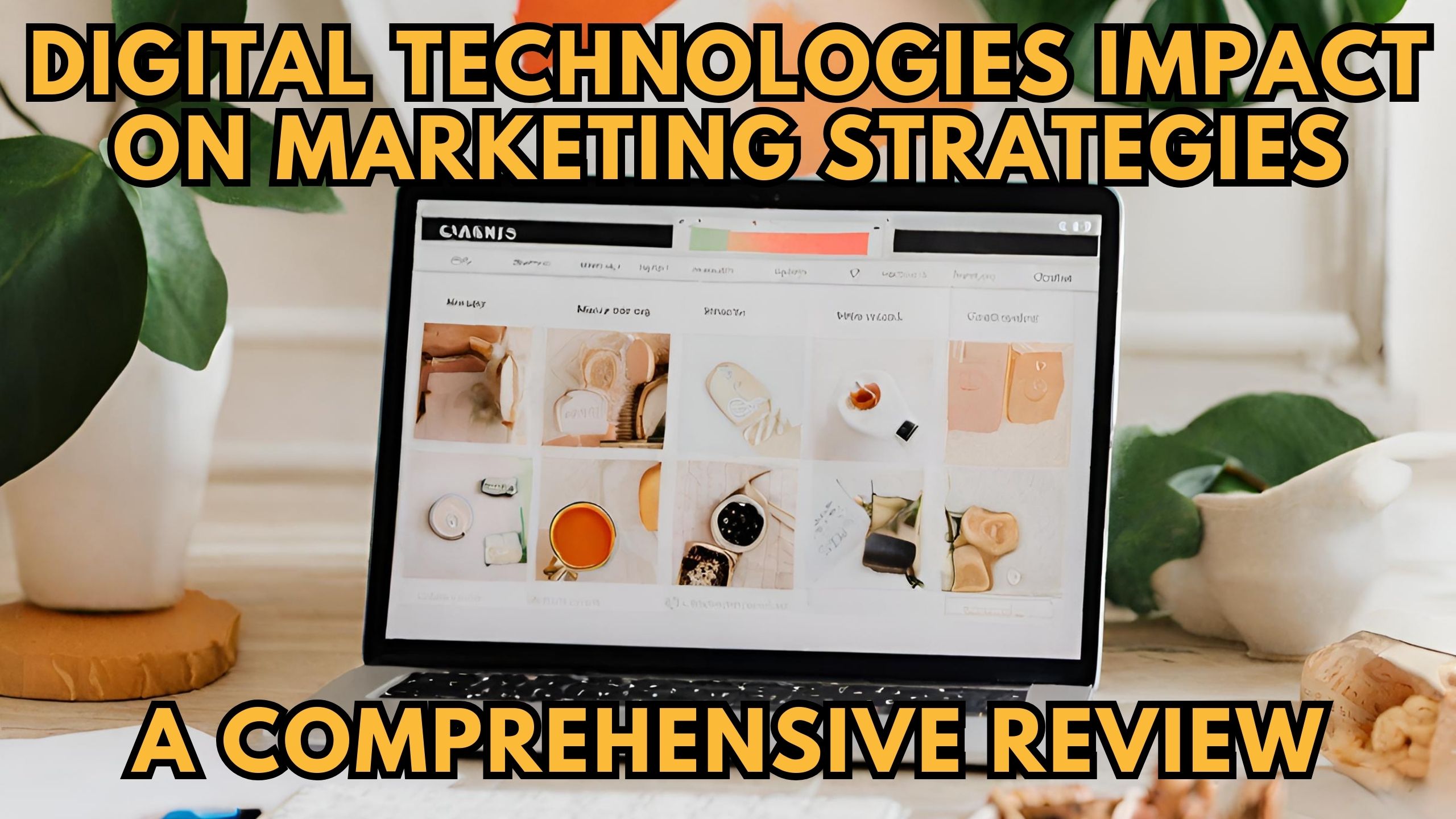Digital Technologies Impact on Marketing Strategies: A Comprehensive Review
- Conversational Marketing Software SEO Software Affiliate Marketing Software Marketing Tools


Digital Technologies Impact on Marketing Strategies: A Comprehensive Review
The rapid evolution of digital technologies has revolutionized the landscape of marketing strategies, reshaping the way businesses connect with their audiences. In this comprehensive review, we delve into the profound impact of digital technologies on modern marketing.
1. Artificial Intelligence (AI) and Personalization: Redefining Customer Experiences
As AI-powered tools like Segment gain prominence, marketers can leverage advanced analytics to understand customer behavior, enabling personalized and targeted interactions. This not only enhances customer experiences but also improves engagement and conversion rates. AI-driven personalization allows businesses to deliver content tailored to individual preferences, fostering a sense of connection and loyalty among consumers.
2. Marketing Automation: Streamlining Workflows for Efficiency
Tools like HubSpot automate repetitive marketing tasks, allowing teams to focus on strategy and creativity. The efficiency gained from automated workflows leads to improved lead nurturing, more effective campaigns, and ultimately, increased ROI. Marketing automation also facilitates seamless cross-channel integration, ensuring a consistent and cohesive brand message across various touchpoints.
3. Data Analytics and Insights: Informed Decision-Making
Platforms like Google Analytics empower marketers to extract valuable insights from data, enabling informed decision-making. Understanding user behavior, demographics, and preferences helps tailor marketing strategies for maximum impact. With data analytics, businesses can identify emerging trends, optimize campaigns in real-time, and allocate resources more effectively based on performance metrics.
4. Social Media Management: Amplifying Brand Presence
With tools like Buffer, businesses can schedule posts, analyze performance, and engage with their audience across various social media platforms. This streamlines social media management, ensuring a consistent and impactful online presence. Additionally, social media management tools enable efficient collaboration among team members, fostering creativity and ensuring timely and relevant content delivery.
5. Content Marketing Platforms: Enhancing Content Strategy
Content marketing platforms like CoSchedule facilitate collaborative planning and execution of content strategies. These tools enhance team coordination, streamline content creation, and contribute to a more cohesive and effective marketing approach. The ability to plan, schedule, and analyze content performance in one platform enhances productivity, allowing marketers to focus on creating high-quality, engaging content.
Conclusion
The integration of digital technologies into marketing strategies has not only transformed the way businesses operate but has also redefined customer expectations. From personalized experiences powered by AI to the efficiency gains of marketing automation and the strategic insights provided by data analytics, embracing these digital tools is essential for staying competitive in the modern landscape.
Unlock the Power of Your SaaS Stack with Subscribed.fyi!
Explore the all-in-one solution at Subscribed.fyi for understanding, comparing, and managing your SaaS stack. Sign up to unlock exclusive member-only deals on 100+ SaaS tools, providing savings of over $100,000 per year. Manage all your subscriptions effortlessly, empowering freelancers, agencies, and teams to make informed decisions about SaaS tools. Your secret deals are just a click away!
Relevant Links:





